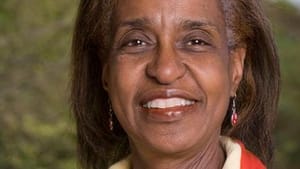Stay in the Loop
BSR publishes on a weekly schedule, with an email newsletter every Wednesday and Thursday morning. There’s no paywall, and subscribing is always free.
In Philly, Ben Franklin’s 312th birthday is all about “race awareness”

January 17 of this year would be the 312th birthday of founding father, inventor, scientist, author, and philosopher Benjamin Franklin. To honor Franklin’s ongoing contributions (both in his time and to contemporary society), a number of Philadelphia institutions, including the Franklin Institute, the University of Pennsylvania, and the Christ Church Preservation Trust, team up to mark his birthday with a celebration in Old City, including a public seminar and a ceremonial march to Franklin’s grave.
From slaveholder to abolitionist
This year’s event is coming up on Friday, January 12. Each year, organizers use the anniversary to address a different theme connecting Franklin’s work to ongoing social issues. For 2018, “Race Awareness in America” feels especially timely, as our country grapples with the fallout of the white supremacist rally in Charlottesville, NFL protests, and boycotts and other ongoing responses to police violence and systemic racism.
But what does Franklin, specifically, have to teach us about the racial divide that America faces now?
“Benjamin Franklin began his life as a slaveholder… and ended it as an abolitionist,” explains Dr. Emma Jones Lapsansky-Werner, a history professor emeritus from Haverford College, who will deliver a talk at the morning seminar called “Complexity and Nuance: Benjamin Franklin, William T. Coleman and a Serpentine Narrative of Race in America.”
As an undergraduate, Lapsansky-Werner studied history (with a yearlong break to work in the Mississippi civil rights movement) at the University of Pennsylvania , where she also went to on receive her doctorate in American civilization. She is a Pennsylvania-history specialist and experienced public speaker, and some of her research focuses on the intersections of Quaker and African-American history.
Franklin’s legacy on race isn’t a simple story of his seeing the light on the moral tragedy of slavery: Lapsansky-Werner explains that one of the reasons Franklin opposed slavery was because he felt it would make slaveowners lazy.
Teachable opinions
“Franklin was both a man ahead of his time — but also a man of his time,” she says. “He was wary not only of African-Americans, but also of Jews, Native Americans… even German immigrants.”
What Lapsansky-Werner believes is most important that we take away from Franklin’s legacy on race is that he was, ultimately, teachable in his opinions. She gives the example of how he once visited a school for African-American children and came away with a new sense of their humanity. “He weighed evidence in a scientific way. He thought differently about African-Americans after he saw evidence in that school.”
She also acknowledges how important these public conversations about race are — and how we are, more than 300 years later, still struggling to talk about race.
American schools and “Brothers No More”
In addition to Lapsansky-Werner’s talk, the morning will include two other important perspectives. Robert Mason Hauser, executive officer of the American Philosophical Society, will share a talk titled “What’s the Matter with American Schools?” Jean R. Soderlund, professor of history emeritus at Lehigh University, will offer “Brothers No More? Lenapes and Colonists in the Delaware Valley.”
Following the morning seminar, there will be a public procession through Old City to Franklin’s grave in Christ Church Burial Ground.
The event concludes with a luncheon ceremony, during which an honored guest receives the Franklin Founder Award. This year’s award will go to Dr. Robert W. Bogle, the president and CEO of the Philadelphia Tribune, and to the newspaper itself. Dating back to 1884, it’s the oldest continually publishing African-American newspaper in the country.
On Friday, January 12, the annual celebration of Ben Franklin’s birthday starts with a free seminar from 9 to 11am in the Benjamin Franklin Hall of the American Philosophical Society (APS), 427 Chestnut Street. Reserve your spot in advance online. From 11:15am to 12pm, there will be a public procession from APS’s Library Hall to Franklin’s grave at Christ Church Burial Ground at 5th and Arch Streets. The luncheon honoring Dr. Robert W. Bogle is sold out.

Above: A previous year's march in honor of Ben Franklin's birthday. (Photo courtesy of Celebration! of Benjamin Franklin, Founder.)
Sign up for our newsletter
All of the week's new articles, all in one place. Sign up for the free weekly BSR newsletters, and don't miss a conversation.

 Gabrielle Kaplan-Mayer
Gabrielle Kaplan-Mayer